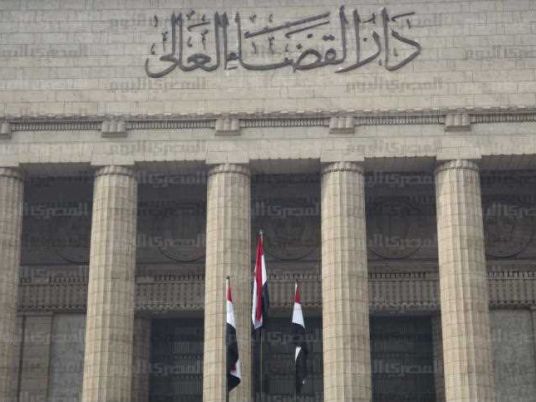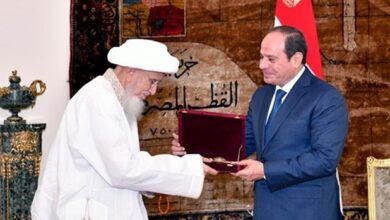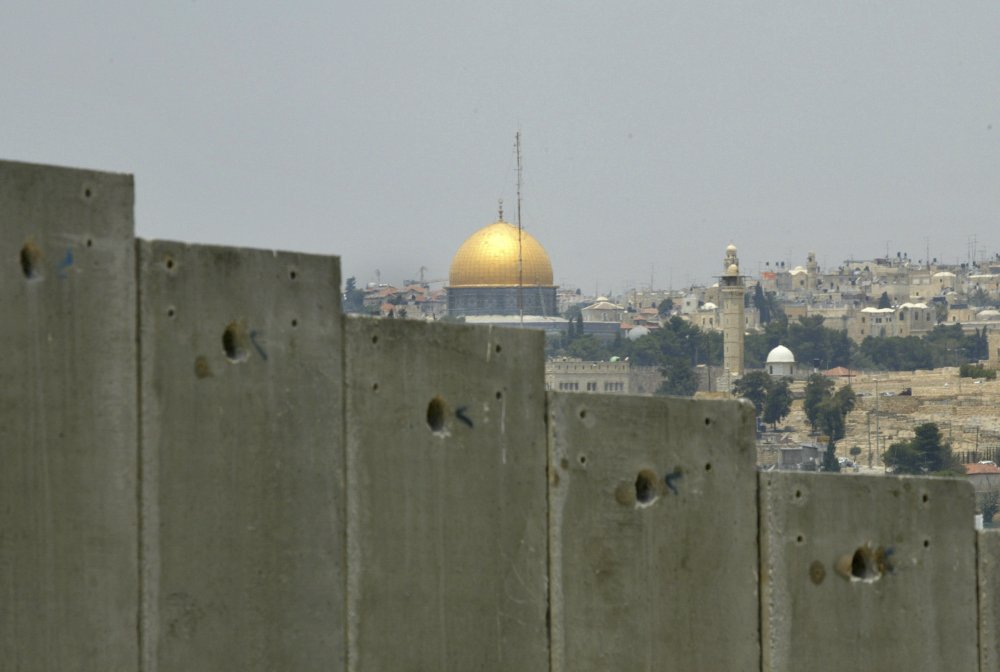President Abdel Fattah al-Sisi ratified the controversial law on judicial authority, which gives the President the right to select the the heads of the judiciary authorities from among three vice-chairmen nominated by the supreme council of that body from among the seven oldest deputies.
The Law No. 13 for the year 2017, published on Thursday evening in the Official Gazette, included amendments to the regulations of the Administrative Prosecution Authority, Law of the State Commission, the Judicial Authority Law and the State Council Law.
The law gives the President the right to choose the head of each judicial body out of three deputies nominated by the General Assembly of the body.
The House of Representatives on Friday approved through standing vote, with a two-thirds majority of members, amendments to the Judicial Authority Law.
In response, the president of the Judges Club, Judge Mohamed Abdel Mohsen Mansour, said that the club had taken seven decisions in response to the Parliament passing of the judicial amendments bill; most notably, the convening of an emergency general assembly on May 5 to discuss the law, which violates the independence of the judiciary.
The Parliament's approval came in a general session in which MPs were suddenly asked to vote on the draft law without any prior discussion of the observations made earlier by the State Council in its report on the bill, after it had rejected the proposed amendments.
The Club called for an emergency general assembly for the State Council on Wednesday evening, expressing "confidence in the wisdom of the President to [prioritize] constitutional legitimacy, and protect the independence of the Judicial Authority."
"We were surprised by the House of Representatives' approval of the Judicial Authority bill despite the bill's unconstitutionality and despite having been rejected by the Supreme Judicial Council and the Judges Club," the statement added.
The bill was not voted on in accordance with the regulations of the House of Representatives, as a large number of MPs objected to its discussion and withdrew from the session, the statement continued.
The new draft law stipulates that the President would appoint the heads of the judiciary authorities, chosing from among the three vice-chairmen of each judicial body, nominated by the supreme council of that body from among the seven oldest deputies.
The newly-passed law is contrary to the old system, whereby the head of an authority would be appointed according to absolute seniority — a concept considered by State Council's Judges Club as "one of the established principles and legal constants and one of the guarantees of the independence of the judiciary", to ensure that no official interferes in the selection of the president of the Court of Cassation.
In a phone-in to "10 PM" TV program on Dream Channel, Samir al-Bahy, chairman of the State Council Judges Club, asserted that the goal of passing these amendments to how the heads of judicial bodies are selected is to dismiss Judge Yehia al-Dakroury as head of the State Council on July 1.
Dakroury is the one who issued a ruling in June 2016 that nullified the Red Sea islands demarcation agreement with Saudi Arabia.
Bahy added that the Red Sea islands case is the reason behind the insistence on amending the Judicial Authority Law. "I hope we will not resort to internationalizing the case. There are some voices calling for this, but God willing, we will not do that," he stated.
Edited translation from Al-Masry Al-Youm





